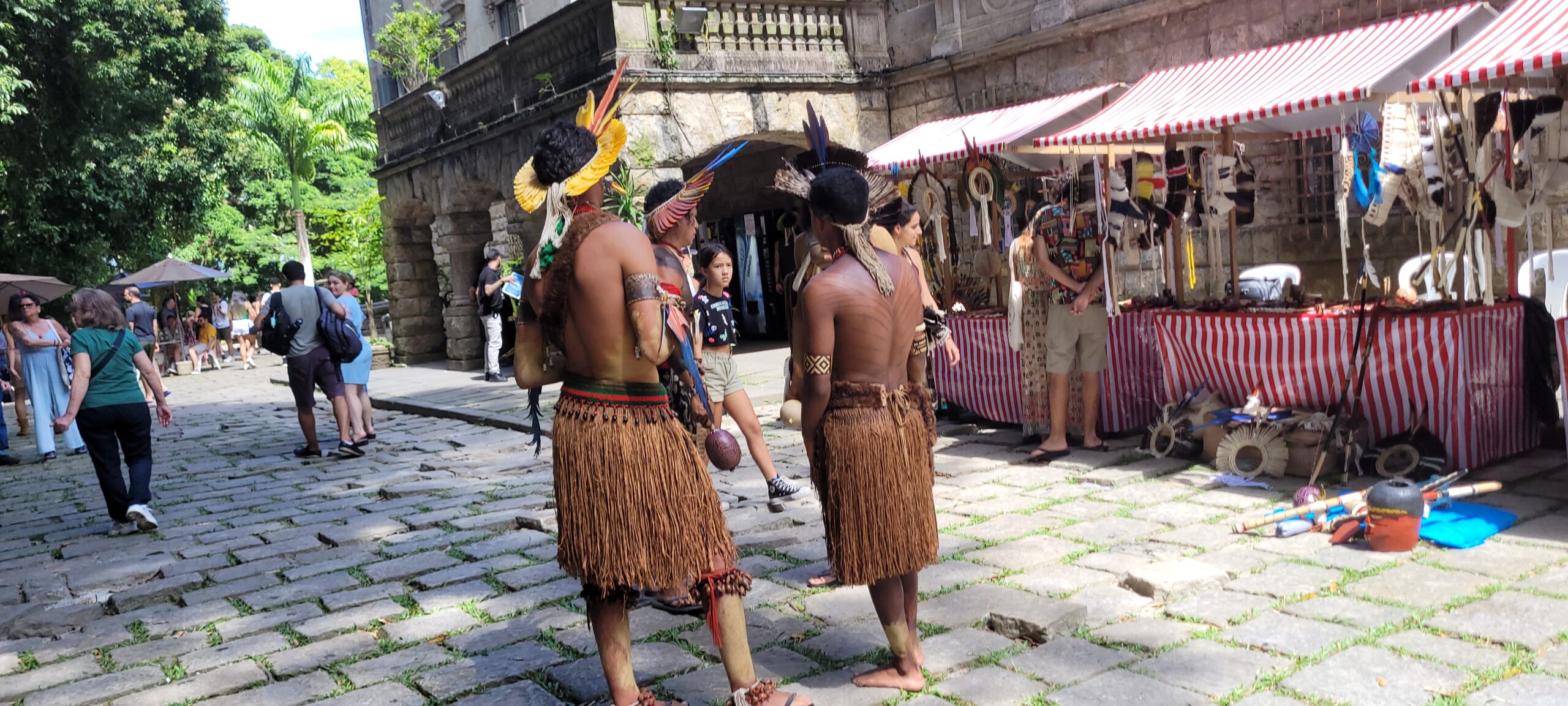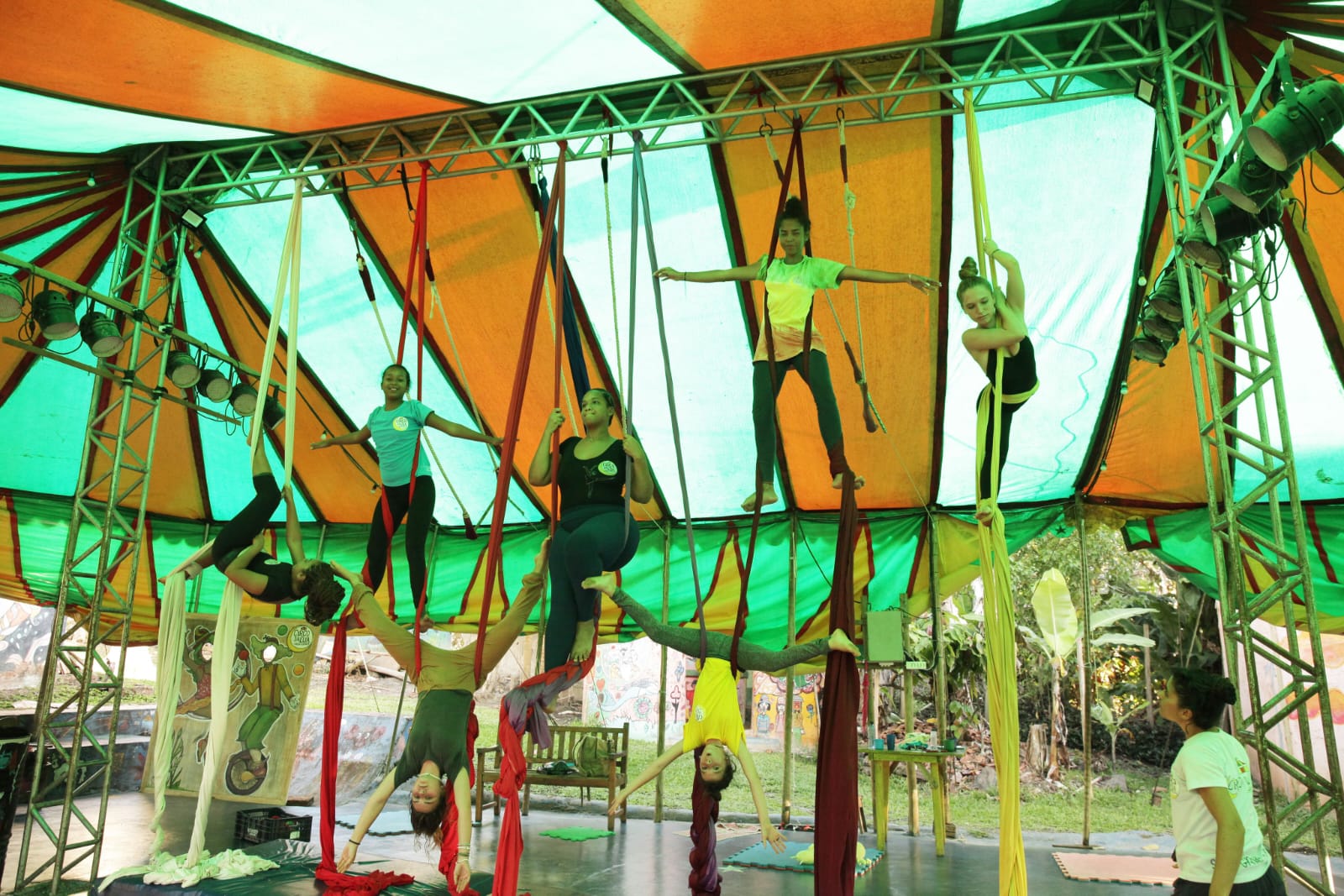Hip Hop RS Museum celebrates the protagonism of the favelas of Rio Grande do Sul
With a collection of over 6 thousand items, the first hip-hop culture museum in Latin America is an invitation to reflect on urban spaces, ethics, and commitment
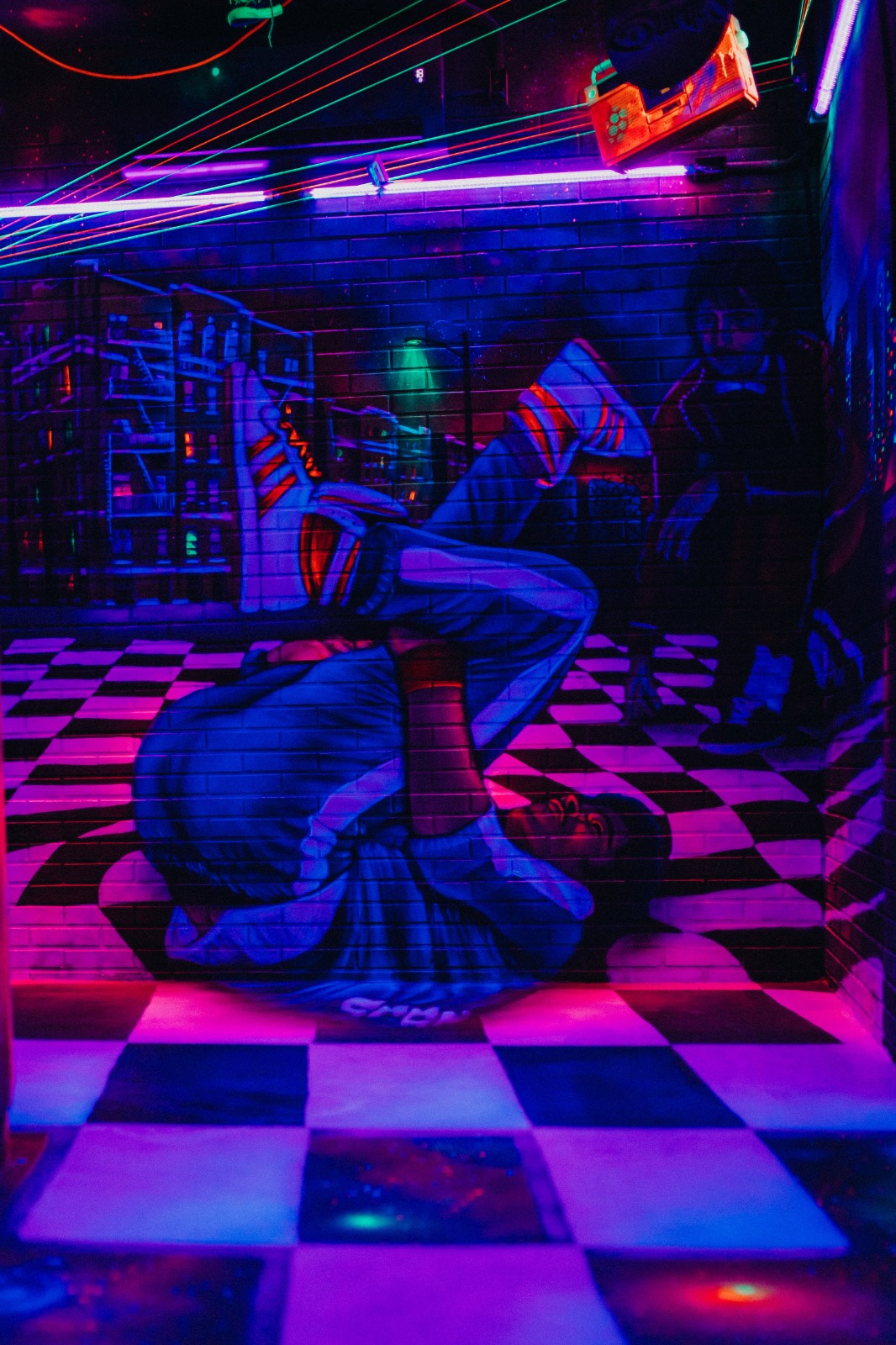
The Museu da Cultura Hip Hop Rio Grande do Sul (‘Hip Hop Culture Museum of Rio Grande do Sul’) was inaugurated at the end of last year in Porto Alegre and has already made history. With exhibitions on poetry, rhythm, dance, art and knowledge, the space is the first in Latin America to preserve the living street culture, honouring the Master of Ceremonies, the Disk Jockey, the Break, the Graffiti and the call to consciousness.
In addition to the core of the five elements, the museum also features exhibitions on the origin, aesthetics, sports and social movements linked to hip hop. “We’re not seeking to tell the history of hip hop chronologically, but to show who is the protagonist of this history, to value the people from the favelas, the Black people of Rio Grande do Sul”, says the history professor and one of the museum’s creators, Rafael Mautone Ferreira.
Visits are guided by an MC, a DJ, a graffiti artist, a BGirl, and a poetess from the local scene, with graffiti workshops and breakdance circles. “The museum brings this educational protagonism, it’s not a static protagonism of the past, it’s a protagonism that plants seeds for the future, of the boy and girl from the favelas who go there and say: this guy here is my uncle, look at my mom’s photo, my aunt’s photo, they’re in the museum!”, Rafael emphasises.
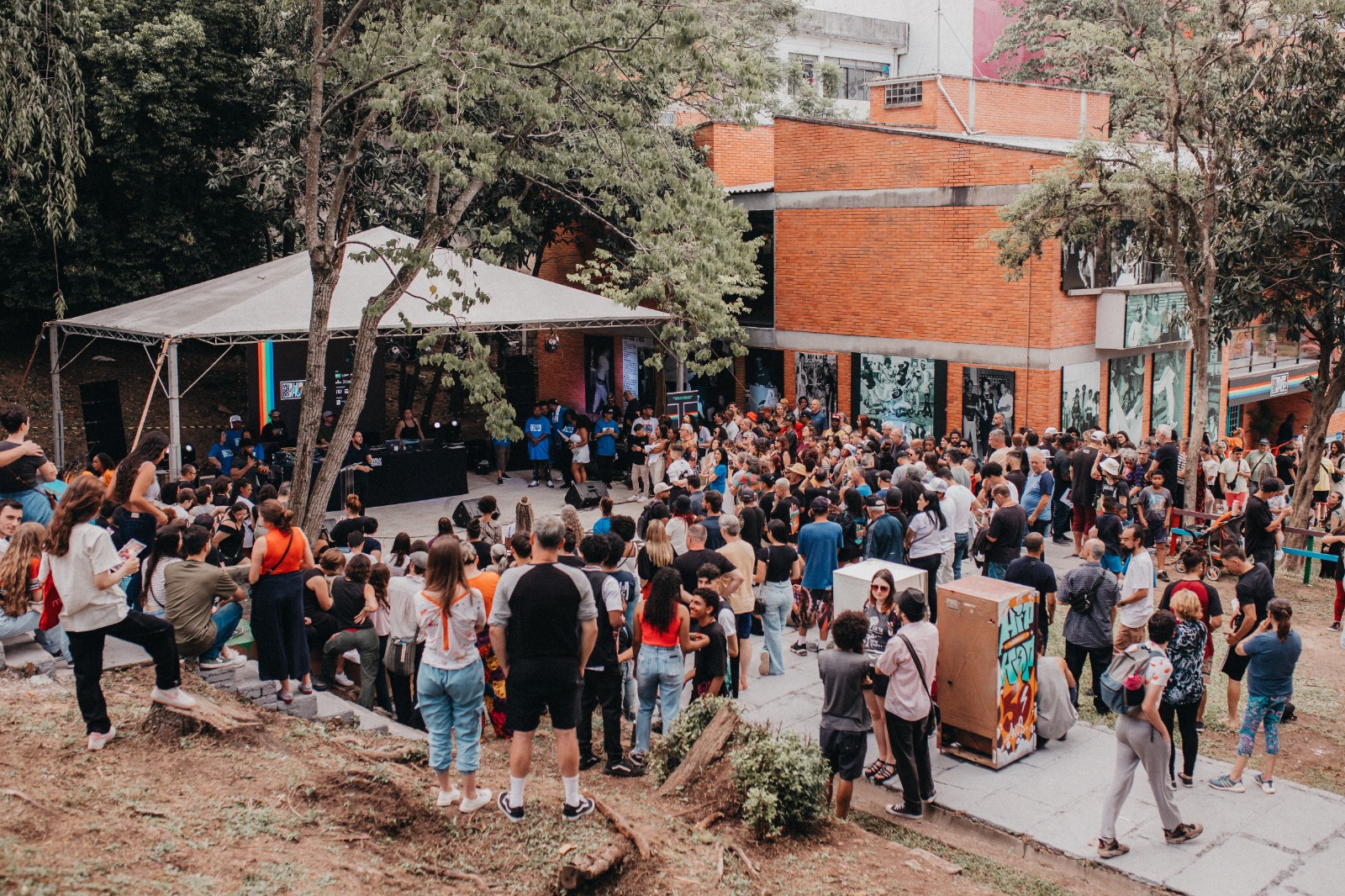
Favelas of Rio Grande do Sul
Hip-hop is a cultural and artistic expression that originated in the suburbs of New York City in the United States in the 1970s and quickly spread to the outskirts of cities worldwide. In Brazil, its influence is so significant that it was recognised as a manifestation of national culture by Decree 11,784 in 2023.
In Porto Alegre, the group Da Guedes, which recently celebrated its 30th anniversary, is a reference in the Rio Grande do Sul rap scene and has a special exhibition at the museum. Nationally known, the group lost one of its members, DJ Only Jay, to COVID-19. Rafael Ferreira was the pedagogical coordinator of the Casa de Cultura Hip Hop de Esteio (‘Hip Hop Culture House of Esteio’), a metropolitan city near Porto Alegre, when he heard about the incident. He recounts how this mobilised the movement that led to the museum’s inauguration.
“Hip hop had a 40-year history in Rio Grande do Sul, but there was nothing documented about it. During the pandemic, Only Jay passed away and was buried in a common grave. That hit us hard; we realized that our history was being lost and only we could tell that story”, he recalls.
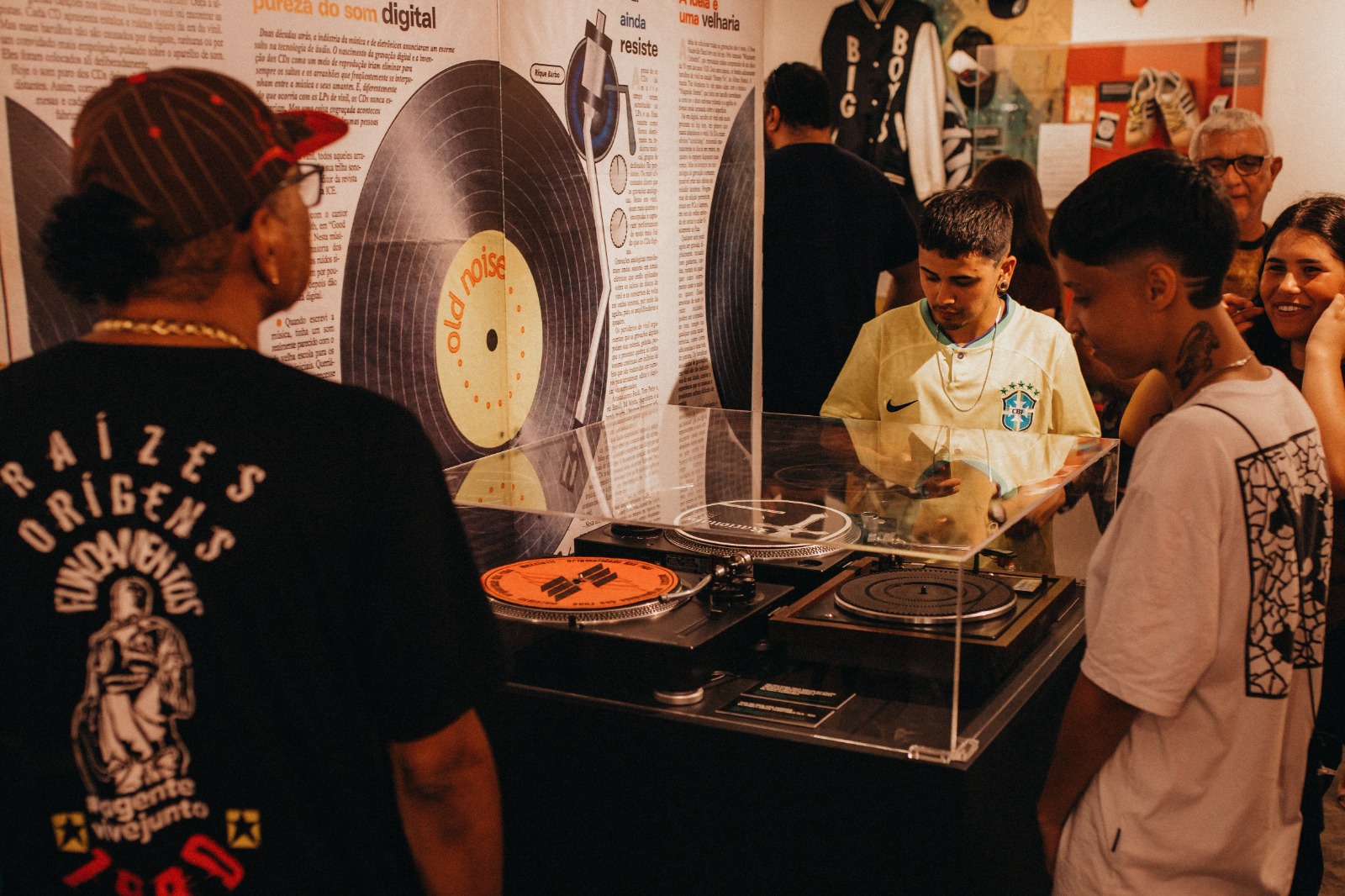
Protagonism
Since 2018, the Casa de Cultura Hip Hop de Esteio (‘Hip Hop Culture House of Esteio’) has been working on a project in partnership with the Ministry of Labor to combat child labour through hip-hop workshops. With the news of Only Jay’s death, the association joined forces with the Public Prosecutor’s Office of Rio Grande do Sul and developed a project for historical and anthropological research on the movement in the state.
“We hired the Instituto Fidedigna (‘Fidedigna Institute’) and, due to the pandemic, we held several online forums in the nine regions of Rio Grande do Sul to discover who the hip hopers in the state were, their history and the elements, always seeking gender, racial, geographic, and age equity”, explains Rafael.
A year later, when the pandemic began to be controlled, the search for the material that now comprises the museum’s collection began. “This story is obviously from those who were interested in telling it to us. The museum is community-based; we are not a European museum that stole others’ history. We continue to receive donations because hip hop is a living culture”.
The collection comprises six thousand items, with around 600 on display to the public. In addition to the exhibitions, the museum also offers a library, studio, court, auditorium, and agroecological garden. “The name of our library is Divilas, in honor of the rapper Chiquinho Divilas from Caxias do Sul. It’s a library focused on ethnic-racial and gender literature. The hip hop museum is this! A museum of resistance, decolonization… It’s a museum that reverses this history and puts the excluded as protagonists”, defends the professor.
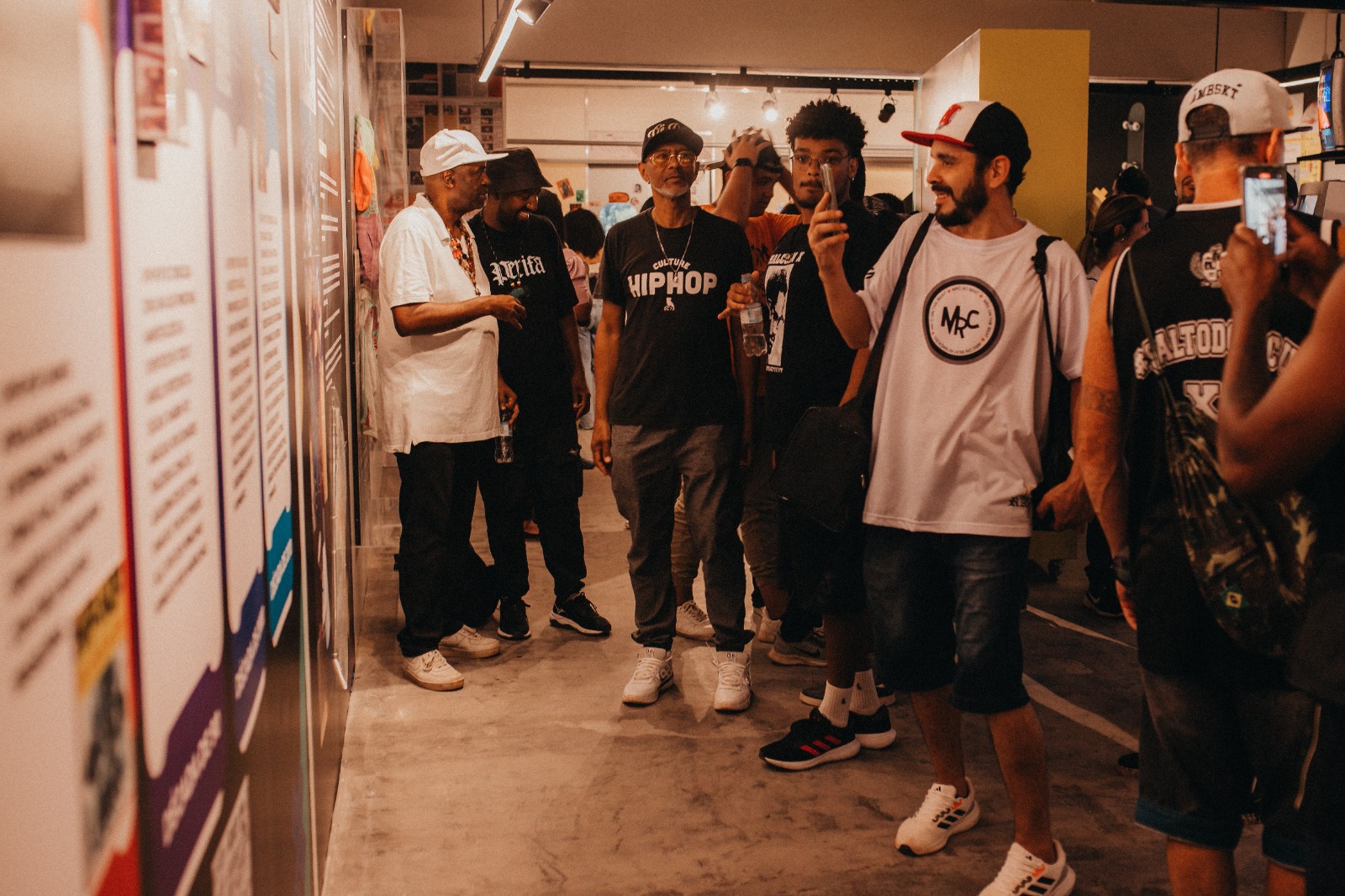
Research, Mapping and Celebrations
According to Rafael Ferreira, the historical and anthropological research brought the Rio Grande do Sul hip-hop movement back together. “The online forums brought together people who hadn’t spoken in a while, old faces, many of whom were no longer actively involved”. From the mapping, the Associação de Esteio (‘Esteio Association’) also reached out to organisations in each region and began to encourage the gathering of these individuals on the day of collecting the collection material.
“We held celebrations in the nine regions of Rio Grande do Sul. In many of these places, it was the first hip-hop party post-pandemic. We would go with those cars with big roof racks and come back full of donations, everything you can imagine related to hip hop”, he recounts.
With this material in hand, the association sought partnerships with the Porto Alegre city government and the state of Rio Grande do Sul to find a location to house the museum. The area found was the old Escola Osvaldo Aranha (‘Osvaldo Aranha School’), located in the North Zone of Porto Alegre. The school was closed by the state and returned to the municipality in 2017, which has kept it inactive since then.
This way, in 2021, the Porto Alegre city government decided to lend the space with a 20-year permission of use agreement to the Associação de Hip Hop de Esteio (‘Esteio Hip Hop Association’), the current manager of the museum. “The Porto Alegre city government issued a 20-year permission of use agreement for us. However, it had been five years of neglect. It was overgrown with weeds, everything was covered in mud, the school’s ceramics were broken, the wiring was stolen, the court was destroyed… we had to undergo a long process of revitalization and transformation of the space for the museum”, he recalls.
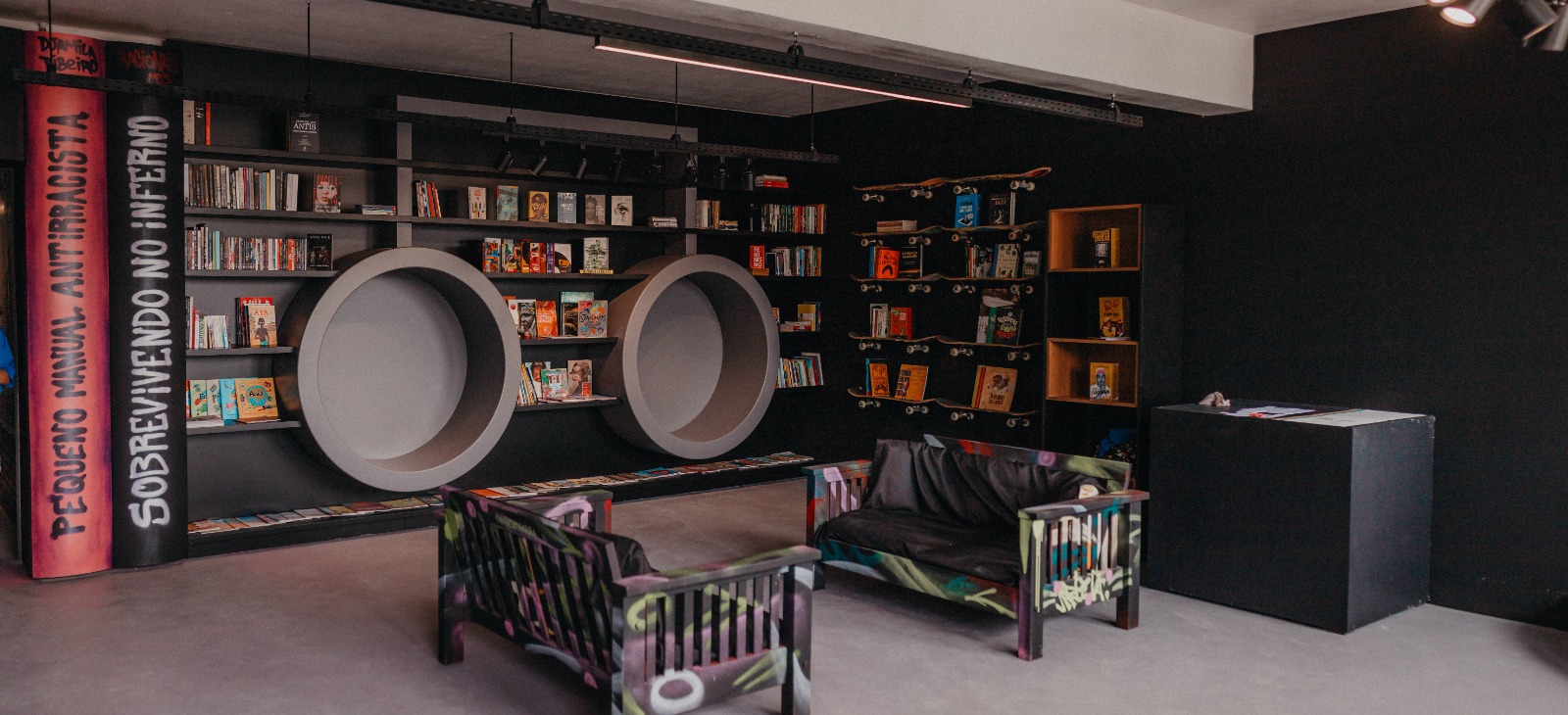
Hip Hop RS Museum
The school was renovated through the Lei de Incentivo à Cultura do Estado do Rio Grande do Sul (‘Rio Grande do Sul State Cultural Incentive Law’), with the support from Tintas Renner, Lojas Quero Quero and Nubank. The museum was inaugurated on December 10th 2023, with a grand celebration featuring rap battles, breakdancing, rap shows, graffiti exhibitions and DJ performances.
In addition to serving the general public, the museum conducts special hip-hop workshops for children and young people. “They come to dance, grab the spray paint, freestyle, scratch on the turntable and then, in the end, we have a kind of presentation, both from the people who wrote lyrics on the spot and from the mediators themselves… they throw a party”, tells the professor.
The initiative was so successful that the Associação de Esteio (‘Esteio Association’) is currently writing a book on how to build a hip-hop museum in collaboration with the Instituto Brasileiro de Museus (Ibram) (‘Brazilian Institute of Museums’). The idea is for other states to have their museums. “We understand that hip hop has an educational strategy through its ethics and aesthetics. Or as they say on the street, it has a way of doing things. So we start from its pillars, which are peace, unity, love and conscious fun, to strengthen the popular culture of the outskirts”, Rafael affirms.
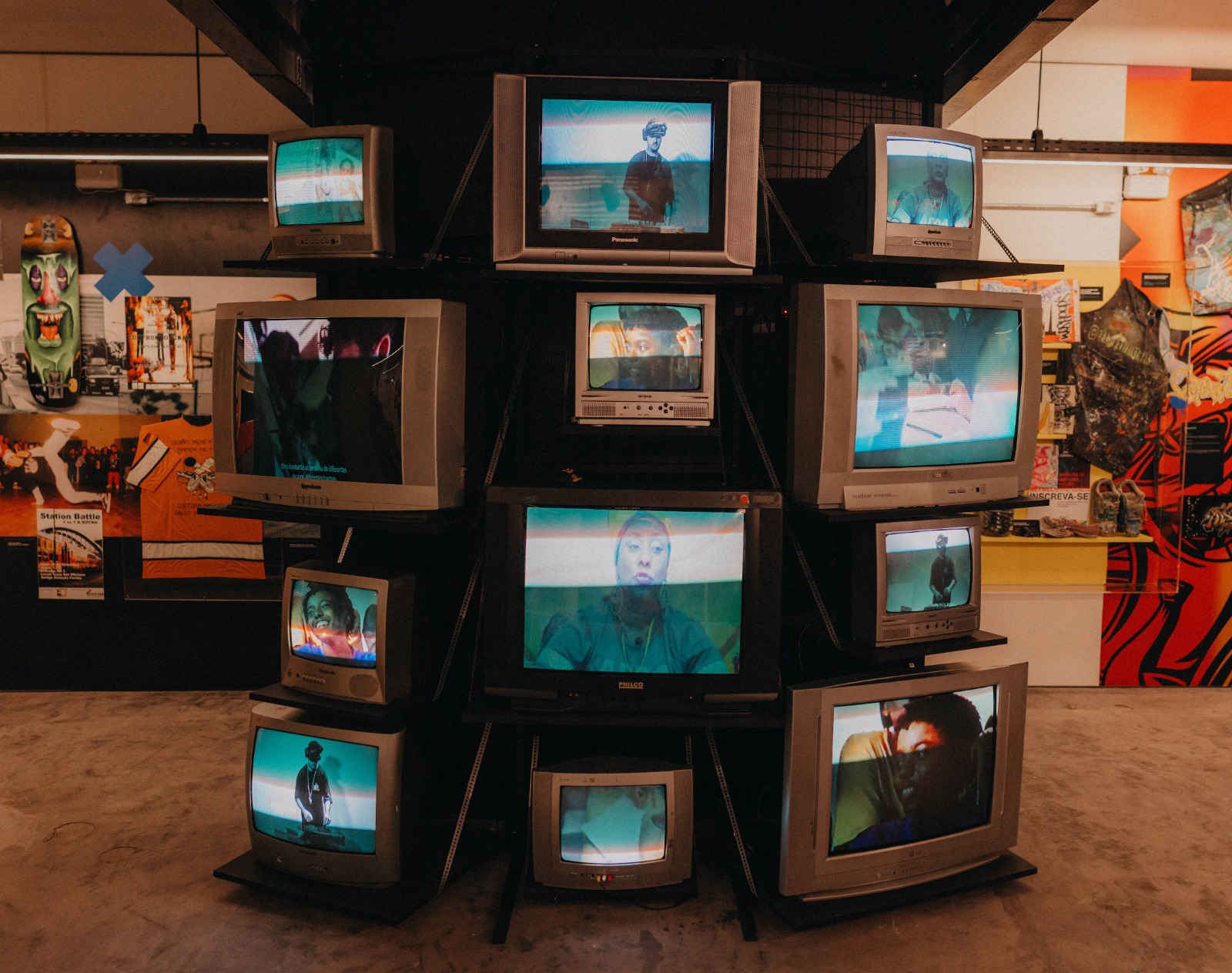
Would you like to participate in the Hip Hop RS Museum?
Currently, the official sponsor of the Museu do Hip Hop RS (‘Hip Hop RS Museum’) is Petrobras Cultural which has recently launched five calls for proposals to integrate its programming. The call covers museum exhibitions, sports events, writers, cultural events, production and recording.
Additionally, there is a form available for receiving other proposals, so that the museum can host self-managed projects with their funding. To learn more, visit the museum’s Linktree or follow their social media on Instagram and Facebook.
Address
The Museu do Hip Hop RS (‘Hip Hop RS Museum’) is located at Rua Parque dos Nativos, 454, Vila Ipiranga, Porto Alegre. The space is open for free or guided visits from Wednesday to Sunday, from 9 am to 12 pm and from 2 pm to 5 pm. Admission is free.


